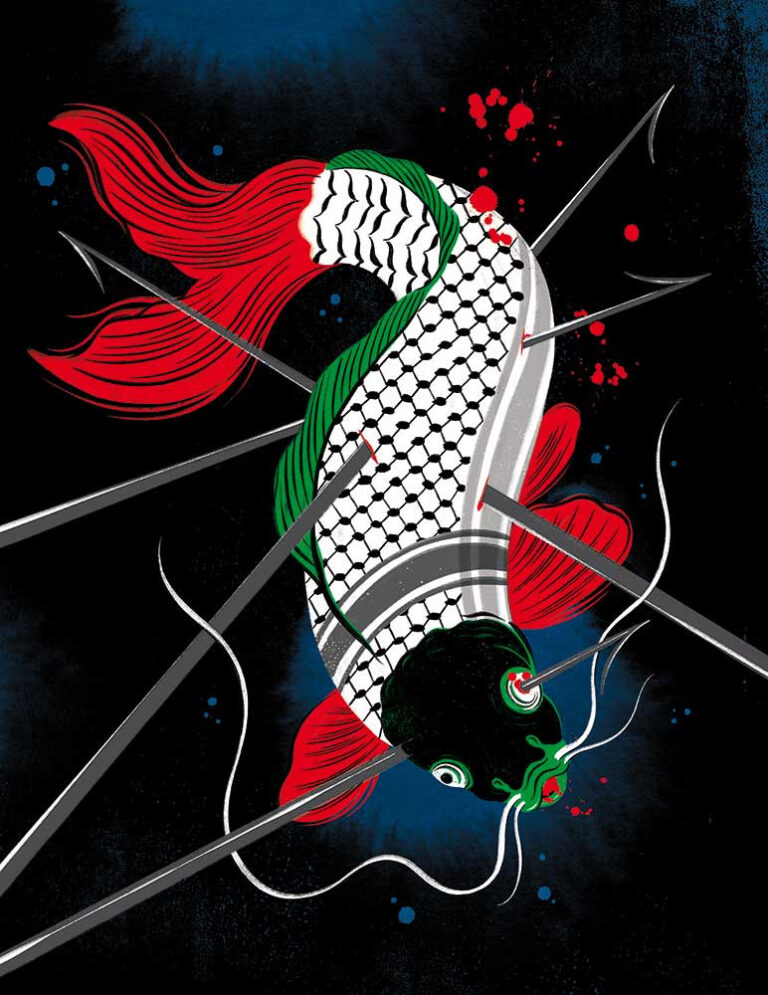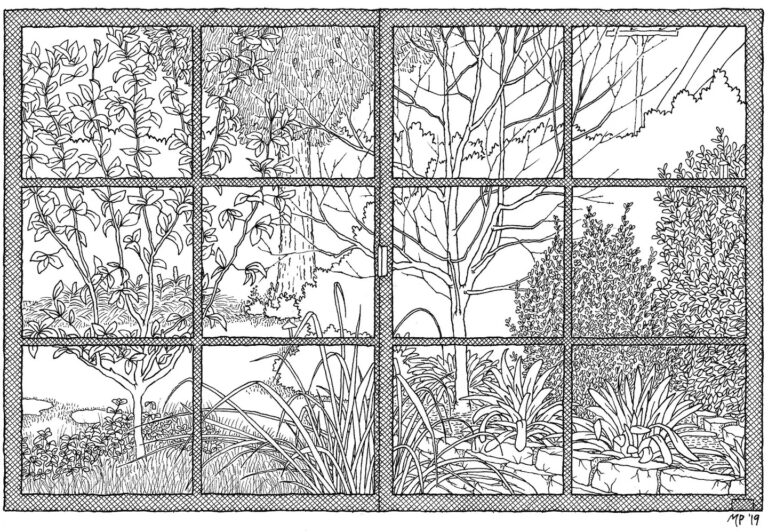Viet Thanh Nguyen writes about his refugee experience in this essay for The New Yorker.
My eternal scene takes place in a faraway country, the one in which I was born and of which I have no memory.

My mother’s death was for me the closing of a door that had moved almost imperceptibly but inevitably for thirteen years, ever since she was struck down by an illness from which she never recovered. The door shut at last, softly, a few days before Christmas last year. At her burial, in a cemetery called Gate of Heaven, the fresh rectangle of grass laid on her grave was the shape and size of a door, its edges still visible.
My mother was comforted, right to the very last moment, by her conviction that another world awaited her. For some people, this kingdom has its own version of walls, borders, and passports, an exclusivity that resembles our world’s, in the way that God resembles us. But, if this hereafter exists, for me it can only be a country with no guards, gates, or limits, no God except a God we cannot imagine. For those who need boundaries, an eternity in which nothing separates us from others must be terrifying.
Perhaps a more comforting vision of this other country where my mother now resides is found in Hirokazu Kore-eda’s masterly film “After Life,” whose great conceit is that the newly dead must pass through a halfway house run by angels. In this place of transit, the migrants must choose one event from their lives that the angels will make into a movie, starring the migrants themselves. Heaven is this short film, played on an endless loop.
I always thought that I would end up as one of the angels who, unable to decide what their ultimate moment should be, become filmmakers—a fate close enough to the writer that I am. But now that the grass on my mother’s grave has filled in and her door out of this world has vanished seamlessly into the lawn, I know what my immortal moment would be, were I to open that door and descend into the halfway house.
My eternal scene takes place in a faraway country, the one in which I was born and of which I have no memory. We fled as refugees, and, like most refugees, we left behind many things, including almost all our photographs. My photographic memories begin here in America, in color, when I was four years old. But a few years ago my adopted sister, whom we did not take with us in the chaos of leaving, sent us some of these lost photographs, including a black-and-white pair that my father had snapped of my mother and me.
She is in the prime of her life, in her late thirties. I am about three. Like so many Vietnamese of her generation, aware that photographs are a special occasion, she looks glamorous in her floral áo dài, with sunglasses and a bouffant. There is no trace of the refugee about her, even though she had been a refugee twenty years earlier, when her homeland had been bisected at the seventeenth parallel by powers that did not ask her opinion. From the north, she fled south with her family and her new husband, my father, into a freshly created country that would survive for only twenty-one years.
In the photos, I look like the son I will have forty years later. We are walking between two rows of rubber trees, their monumental trunks and canopies forming a natural cathedral. They tower over my mother as my mother towers over me. We are unaware that within a year or so, fleeing the Communist invasion, we will be walking again, this time for hundreds of kilometres, with thousands of others. I will become a refugee for the first time, my mother for the second. We will arrive in a new world where the photographs are mostly in color, brighter but less chic than black-and-white, lacking in romance and mystique. My mother will not migrate again until her death.
After she leaves on this third and final journey, the last thing I do for my mother is close her eyes, as my father requests. I do this too quickly, for I am frightened. If I were to do it again, I would lean in more closely, so that I could look into her open eyes. I would hope to glimpse the border she had just crossed, or catch sight of the moment she has chosen for the eternal movie in which she is the star. But of course there would have been no light, except in the theatre of my own mind.
There, the light from the photographs of a scene I do not remember touches me, as Roland Barthes says, like the delayed rays of a star, a radiance that takes decades to reach me. These photographs are the first and the last frames of my short movie, one where we begin by walking toward my father, facing his camera. Then his camera captures us from behind, me clinging to my mother’s hand as we walk toward a rendezvous with our future selves. They await us in a distant land, another country where we will never be as glamorous as we are now. ♦


